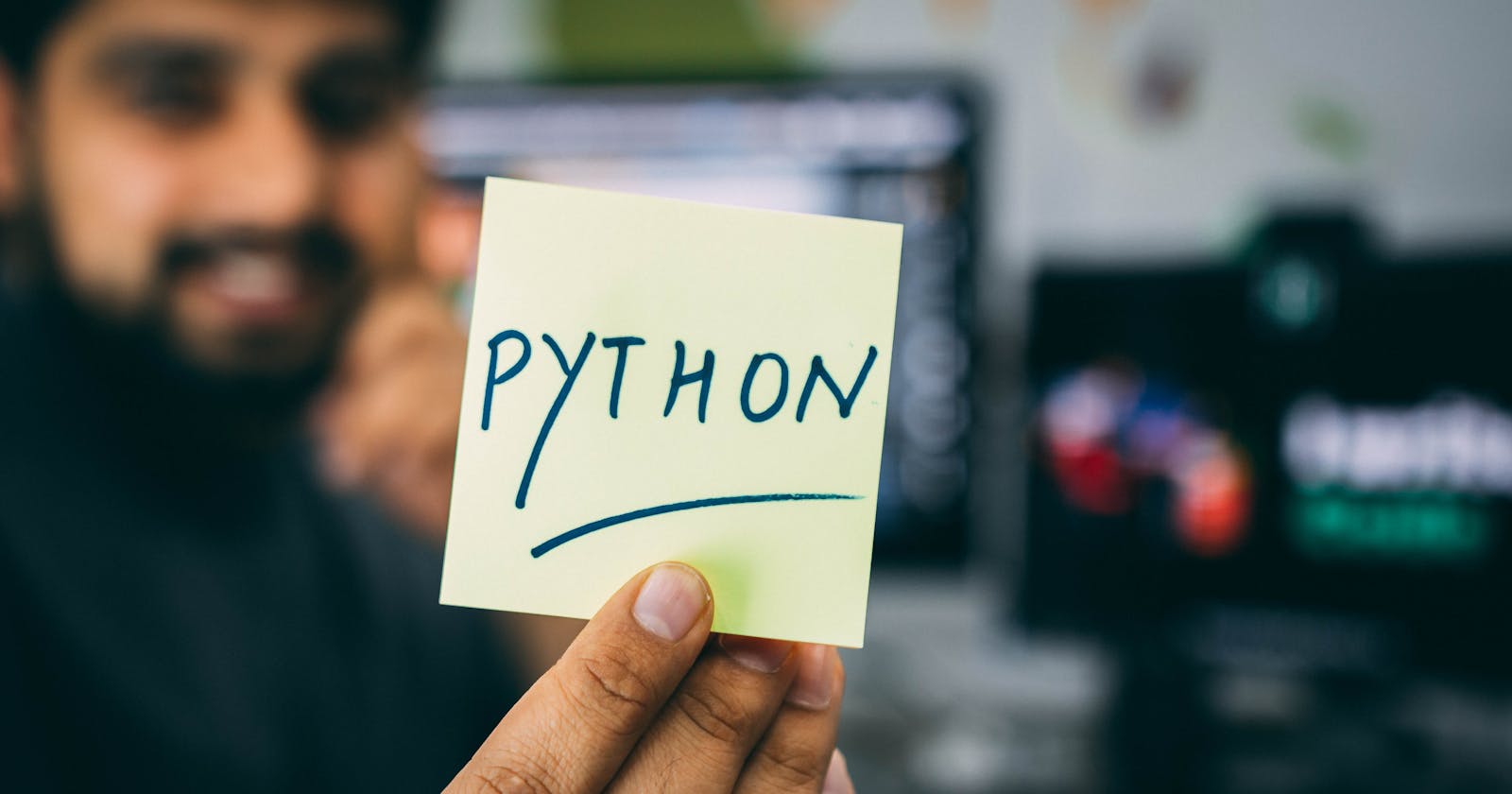Have you ever had desired learning python but don't know how? Well python is not a complex language to learn. It is usually considered as an easy language to learn but can be challenging to master. Anyone can be a python developer. All that is required is consistency, practice, and patience.
What is Python Python is a high-level programming language with dynamic semantics that is interpreted and object-oriented. Its high-level built-in data structures, as well as dynamic type and dynamic binding, making it excellent for Rapid Application Development. Python's concise, easy-to-learn syntax encourages comprehension, minimizing the language's software maintenance costs. It supports automatic memory management, numerous programming paradigms, and the fundamental notions of object-oriented programming (OOP).
Python is a highly typed procedural language with a large and diverse standard library. Python's library supports a wide range of Internet protocols, including FTP and IMAP. It has a different grammar that distinguishes it from other programming languages such as Java, C++, and C.
The No 1 Process: Installation The first step in becoming a Python coder is to install or update Python on your computer. Numerous installation options are available, including downloading official Python distributions from Python.org, installing using a package manager, and even installing customized distributions for scientific computing, the Internet of Things, and embedded systems.
Your Python Go-To Websites
Full Stack Python fullstackpython.com. Full Stack Python is a fantastic and entirely free collection of valuable resources for Python students. Full Stack Python, like a few other entries on our list, was reorganized from a book into its website format. However, if you have a solid knowledge of Python principles, we wholeheartedly suggest this website
Google Python Class developers.google.com/edu/python Google, the internet's largest company, is a big fan of Python and has utilized it in a few of its services. To encourage individuals to learn Python, Google for Education offers a Python lesson that covers numerous key Python subjects. This online program includes lecture videos, textual material, and a plethora of practice exercises.
Python.org python.org. Python.org is the holy grail of all things. But, more importantly, it provides a wealth of additional Python-related resources, such as Python downloads, educational films and podcasts, access to the developer community, the latest news, events, and examples of Python in action. The website provides detailed documentation, cheat sheets, external quizzes and exercises, tutorials, and guidelines for the many Python topics for learners. For Python developers with prior knowledge, the website is chock-full of easily accessible and in-depth reference material, such as guides, books, and FAQs.
Real Python realpython.com Real Python takes a slightly more pedagogical approach to Python-related topics, whereas Python.org gives a more topic-focused approach. Its success stems from its hugely popular and instructive podcast series, The Real Python Podcast, considered one of the most excellent online tools for learning Python.
Learn Python learnpython.org. learnpython.org offers a more educating and interactive approach for beginners to learn python. Instead of simply providing the reader with all of the information on Python, learnpython.org focuses on practical learning. The website contains a plethora of interactive Python tutorials covering practically every Python topic imaginable. Python newcomers will have no trouble exploring the numerous topics in Python and testing their grasp right from the convenience of their browser.
The Python Guru's thepythonguru.com. The Python Guru is does a good job at simplifying Python from been beginners to Python developers. The website thoroughly covered the essential concepts in Python, with each topic or tutorial elaborating on the previous topic to provide a more seamless transition.
Read Python Books I wholeheartedly suggest this collection of novels. Consider Python for the fundamentals, then Python 3 Object-Oriented Programming (which includes excellent case studies), and finally this one for more advanced themes. Python prowess (You might notice a bit of an overlap between these books, but each of which discusses similar topics in different levels of ), You must now implement some algorithms and data structures. This is an excellent book on Python Data Structures and Algorithms. After you've finished these books, you'll need to decide what your next step is (web programming, machine learning, AI, networking, mobile apps, etc.), and you'll have all the tools you need to get started.
Finish the Course It does just end in downloading and registering for the courses. Be consistent, follow through to the end. The problem we have as programmers is the inability to finish courses, most especially when we begin getting little gigs. Finish the course, and it makes you better.
Start a Project Projects keep you learning and active. Do not let you knowledge waste. Make good use of it. This wouldn't just help build your knowledge it also builds your portfolio.
Finally, Keep learning Growth is a process, it never happens by chance. Learning is growth, it eliminates ignorance and keeps you on track with development. Be consistent with your learning. Python is a simple high level language that is versatile, it can be used for a lot of things and learning it has never been a mistake. Take the step today and make the difference today.
